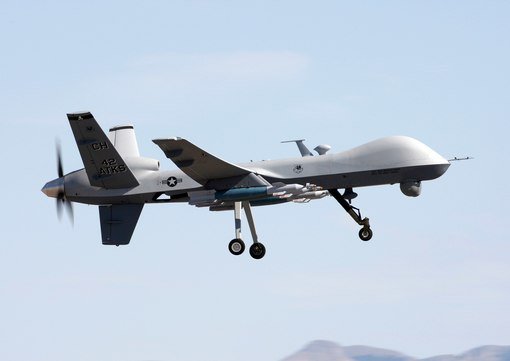
Photograph Source: U.S. Air Force photo by Paul Ridgeway – Public Domain
After two civil wars, multiple invasions and political assassinations galore, you might think Lebanon deserves a break from the greatest crisis since its last greatest crisis. But no – here we were this week with the Israelis claiming the Hezbollah were running a missile factory in the Bekaa Valley and the prime minister – the Lebanese one, not the Israeli – claiming that the world’s investors could put their money in his country even though this infinitely small nation has one of the world’s highest debt to GDP ratios. One-hundred-and-fifty per cent to be precise.
Saad Hariri, the prime minister in question – and yes, his father was indeed assassinated by a huge car bomb a few hundred metres from my own home in Beirut – has been trying to talk down the threat of a credit-rating downgrade just as Lebanon itself declared a “state of economic emergency” on Monday. It was his high-spending billionaire father who kicked off his country’s near-bankruptcy with a massive new city centre after the civil war had destroyed much of Beirut. That is the second civil war we are talking about. It lasted 15 years and cost around 150,000 lives. The figure, by the way, creeps up to 175,000, depending on the newspapers you choose to trust.
But the latest crisis in Lebanon has an almost unstoppable power. It started with two Israeli drones crashing into the southern suburbs of Beirut, where the Hezbollah has its headquarters, and much talk from “security experts” that the targets were Hezbollah missile-manufacturing locations. The Israelis have not said they used drones – which in Beirut means they have – but the Hezbollah produced video of a rocket apparently smashing into an Israeli armoured vehicle on the Israeli side of the southern Lebanese border. The Israelis said none of their soldiers were killed. The Hezbollah suggested two were mortally wounded.
It’s not the first time that the Israelis have claimed Hezbollah has missiles. Indeed, the chair of the Shia militia, Hassan Nasrallah, enjoyed confirming the Israeli claims – even though some of us in Lebanon have doubts about just how many rockets his men have. The Israeli statement that the Hezbollah has set up a missile factory in the Bekaa leads to other questions. Why, for example, did it publish photographs of the location (near the Shia Muslim village of Nabi Sheet) but abstain from bombing it? And if indeed there were missiles there – allegedly from Iran (this story came from the Israelis, of course) – the Hezbollah would most assuredly have moved them by now. Or would they?
But this does mean that the Syrian war can easily explode across the southern border of Lebanon and this at a time when the Lebanese are recalling how just five years ago, Benny Gantz – now a well-known Israeli politician – threatened to “set Lebanon back 70 or 80 years” if there was another conflict on the Lebanese border. In those days, Gantz was Israeli chief of staff. Chiefs of staff – and Israeli prime ministers – do often threaten to put Lebanon back in time (I can count nine separate occasions), but right now the Israelis would probably prefer to keep their northern border quiet. They know, of course, that the Hezbollah also has drones.
In fact, the Hezbollah sent one over Israel several years ago, taking pictures of an Israeli military facility as it flew southwards. It’s not clear if we’re now in for a war of the drones. It was certainly interesting that rebel fighters in Idlib sent a drone towards the Syrian Hmeimin airbase this week. Which is where the Russian airforce is based. So watch out for poor old Lebanon over the next few weeks. And Syria. And Israel.